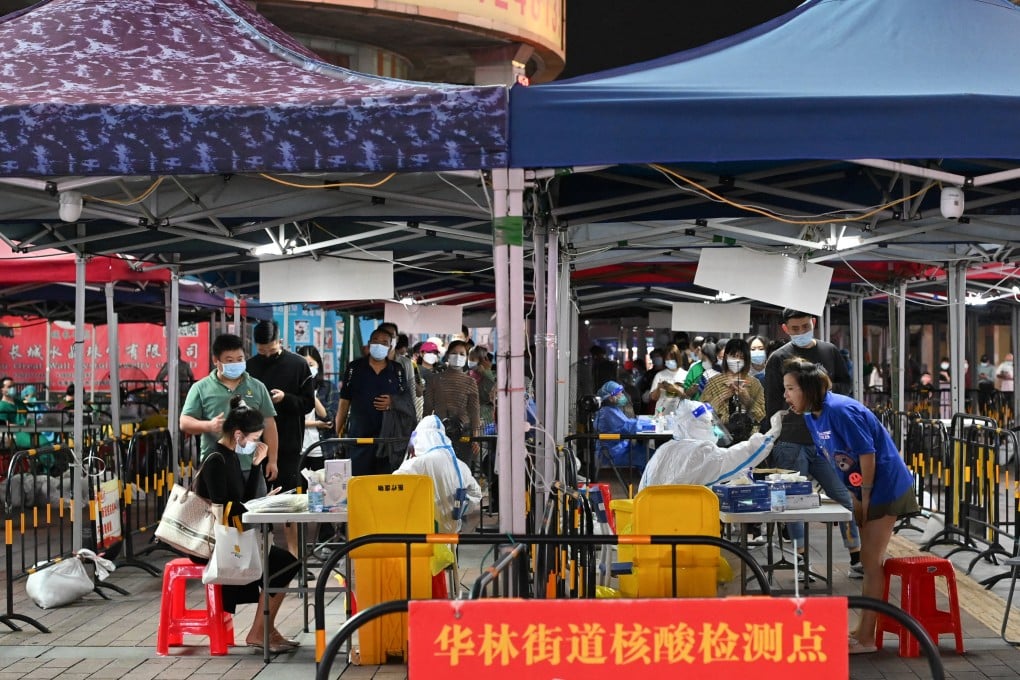China’s zero-Covid policy adding to fiscal debt woes as lab suspends testing services
- Xuchang Boao Runkang Medical Laboratory initially suspended coronavirus testing services in Xuchang, Henan province, having earlier complained about high costs
- Some cities in western and central China have already asked residents to start paying for testing, with an individual test priced at around 15 yuan (US$2)

A temporary suspension of coronavirus testing services in a central Chinese city has increased concerns over local government financing amid China’s zero-Covid policy.
The government-appointed Xuchang Boao Runkang Medical Laboratory said on Tuesday that it would stop accepting samples in Xuchang, Henan province, from Friday having earlier complained about the high cost of test kits, consumable materials and labour as well as slow payments from the local authority.
“The pressure to sustain business operations is too big. We’ll assume Covid-19 tests once [government] funding is available,” said the widely circulated statement, which was withdrawn a day later after local media reported the funding issue had been addressed.
Like most Chinese cities, Xuchang has been relying on transfer payments from central or provincial governments to fill its fiscal gap after its revenue rose by 8.3 per cent from a year earlier to 18.9 billion yuan (US$2.6 billion) in 2021, while its expenditure fell by 1 per cent to 36 billion yuan, government data showed.
